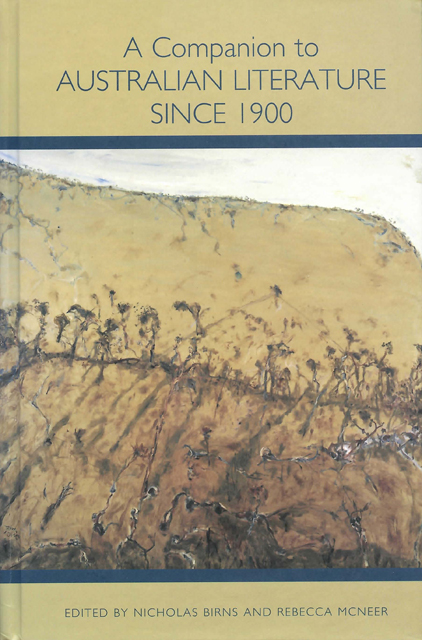Book contents
- Frontmatter
- Dedication
- Contents
- Chronology of Main Events in Australian History, 1901–2005
- Acknowledgments
- Note on the Cover Illustration and Artist
- Introduction
- Part 1 Identities
- Part 2 Writing Across Time
- Part 3 International Reputations
- Part 4 Writers and Regions
- Part 5 Beyond the Canon
- Notes on the Contributors
- Index
19 - Gerald Murnane
Published online by Cambridge University Press: 10 March 2023
- Frontmatter
- Dedication
- Contents
- Chronology of Main Events in Australian History, 1901–2005
- Acknowledgments
- Note on the Cover Illustration and Artist
- Introduction
- Part 1 Identities
- Part 2 Writing Across Time
- Part 3 International Reputations
- Part 4 Writers and Regions
- Part 5 Beyond the Canon
- Notes on the Contributors
- Index
Summary
Gerald Murnane is one of Australia’s most intriguing and accomplished fiction writers. Amidst a national fiction that has been prone to stylistic conservatism and dominated by modes of realism, Murnane emerged as an original, both as a stylist and for his vivid expression of an intensely personal worldview. This originality may have cost Murnane a large audience in Australia, where he is widely regarded as “difficult” to the point of being abstruse, but it has also garnered a loyal readership and international critical interest.
Indeed, critics who have tried to locate Murnane within particular traditions or movements have often looked to international sources. Paolo Bartolini has variously compared Murnane with Jorge Luis Borges (“Spatialised Time,” 185), Paul Eluard (Bartolini, “Triptychal Fiction,” 40), and Italo Calvino (Bartolini, “Interstitial Narratives,” 111); Imre Salusinszky has invoked Edmund Husserl and Jacques Derrida (Salusinszky, “Murnane, Husserl, Derrida”), and Kate Foord has made comparisons between Murnane and Jacques Lacan (274). As these examples indicate, the context for discussion of Murnane is as likely to be drawn from philosophy as fiction. It is clear that Murnane has read very widely, and he has recorded his admiration for Borges and Calvino at least (Murnane, “The Breathing Author, 26), but he has also has denied knowledge of the theory or practice of postmodernism, which have often been used to frame discussion of his fiction. In doing so he has emphasized the compellingly personal nature of his vision.
Murnane was born in Coburg, Victoria in 1939. His family moved frequently when he was a child, largely due to his father’s gambling, which left the family in perilous financial circumstances. Upon completing his schooling in 1957 Murnane studied briefly for the Catholic priesthood. After leaving the seminary he trained as a primary-school teacher, a profession he followed for most of the 1960s.
- Type
- Chapter
- Information
- A Companion to Australian Literature since 1900 , pp. 293 - 304Publisher: Boydell & BrewerPrint publication year: 2010



